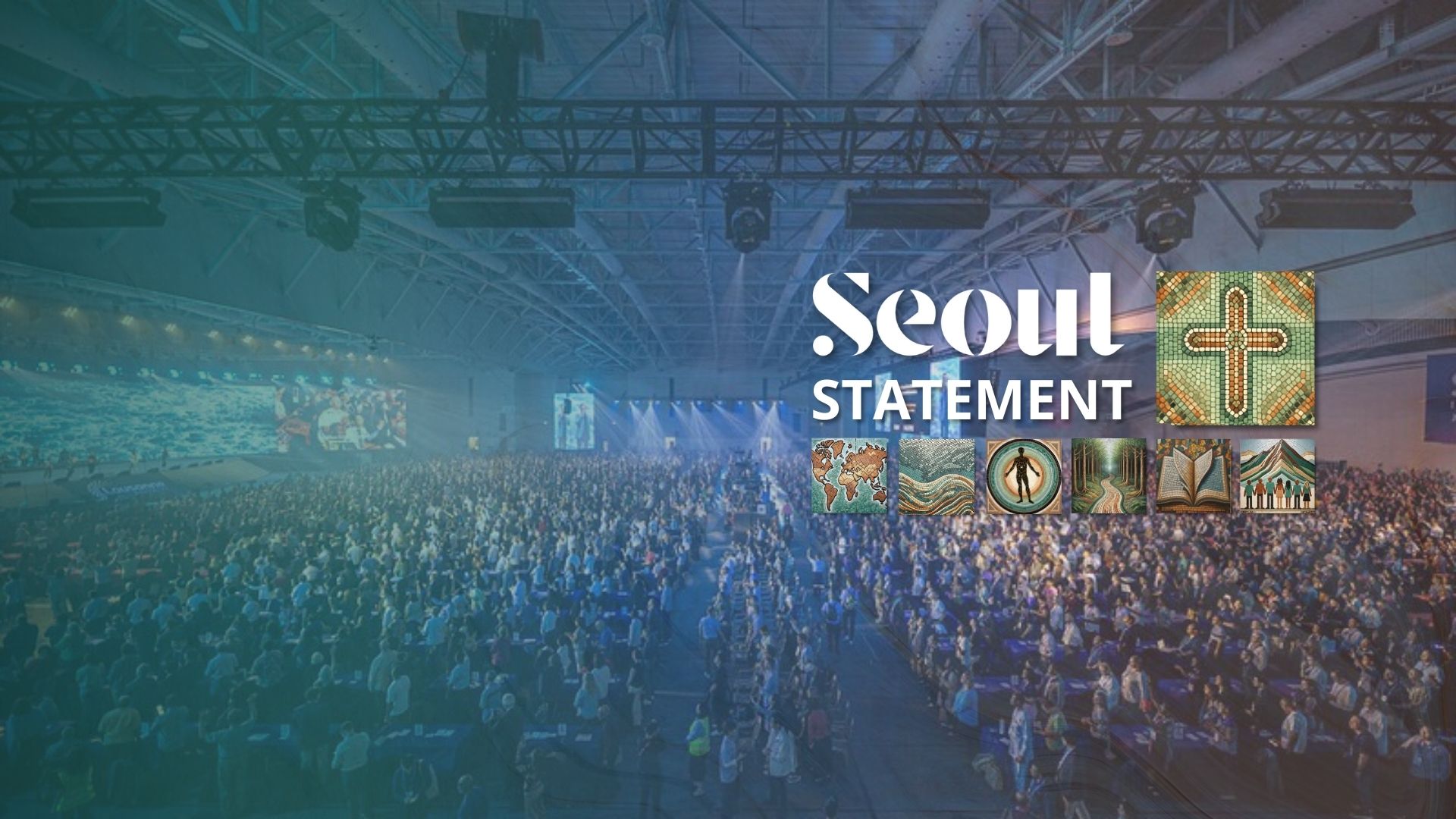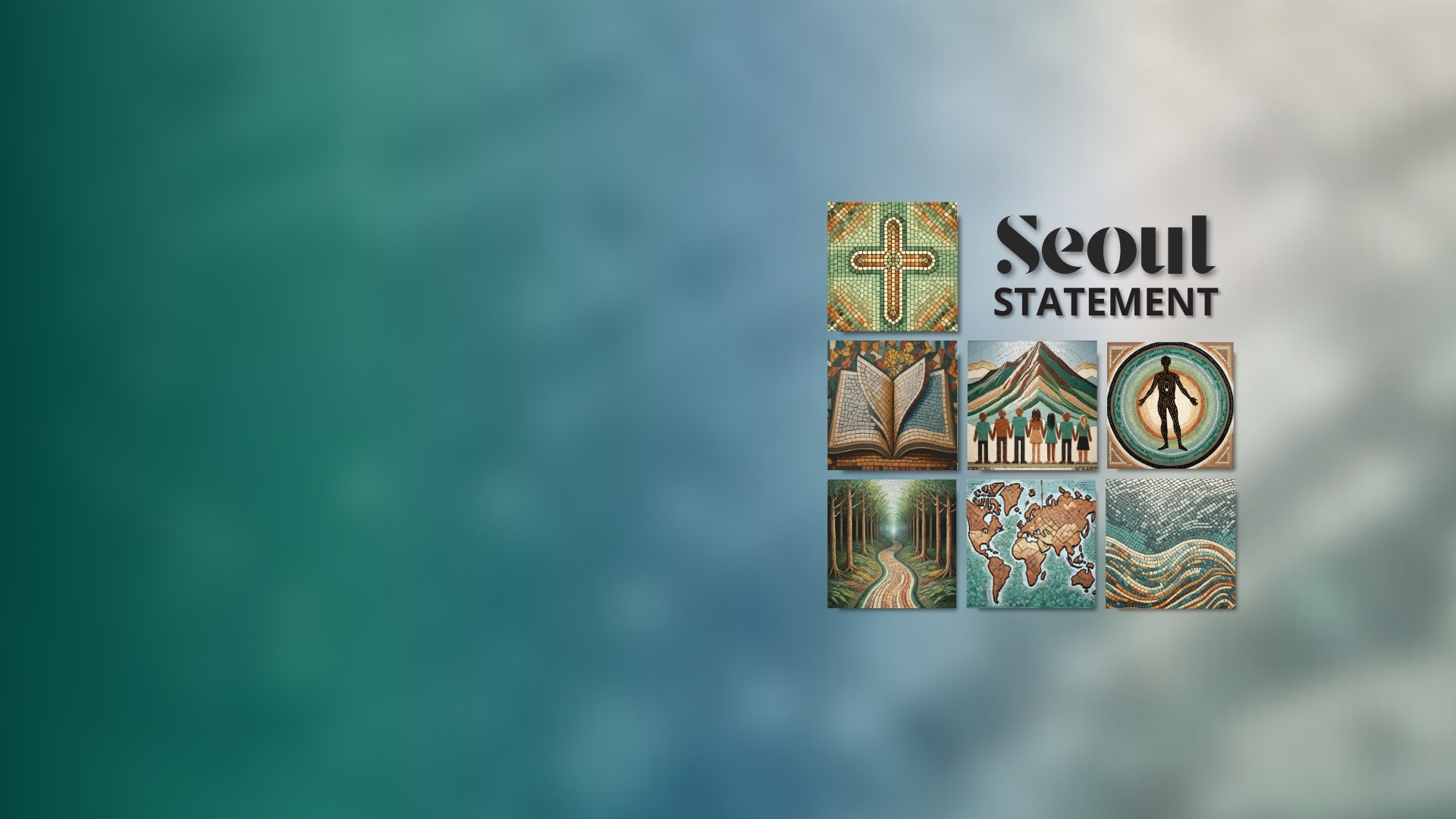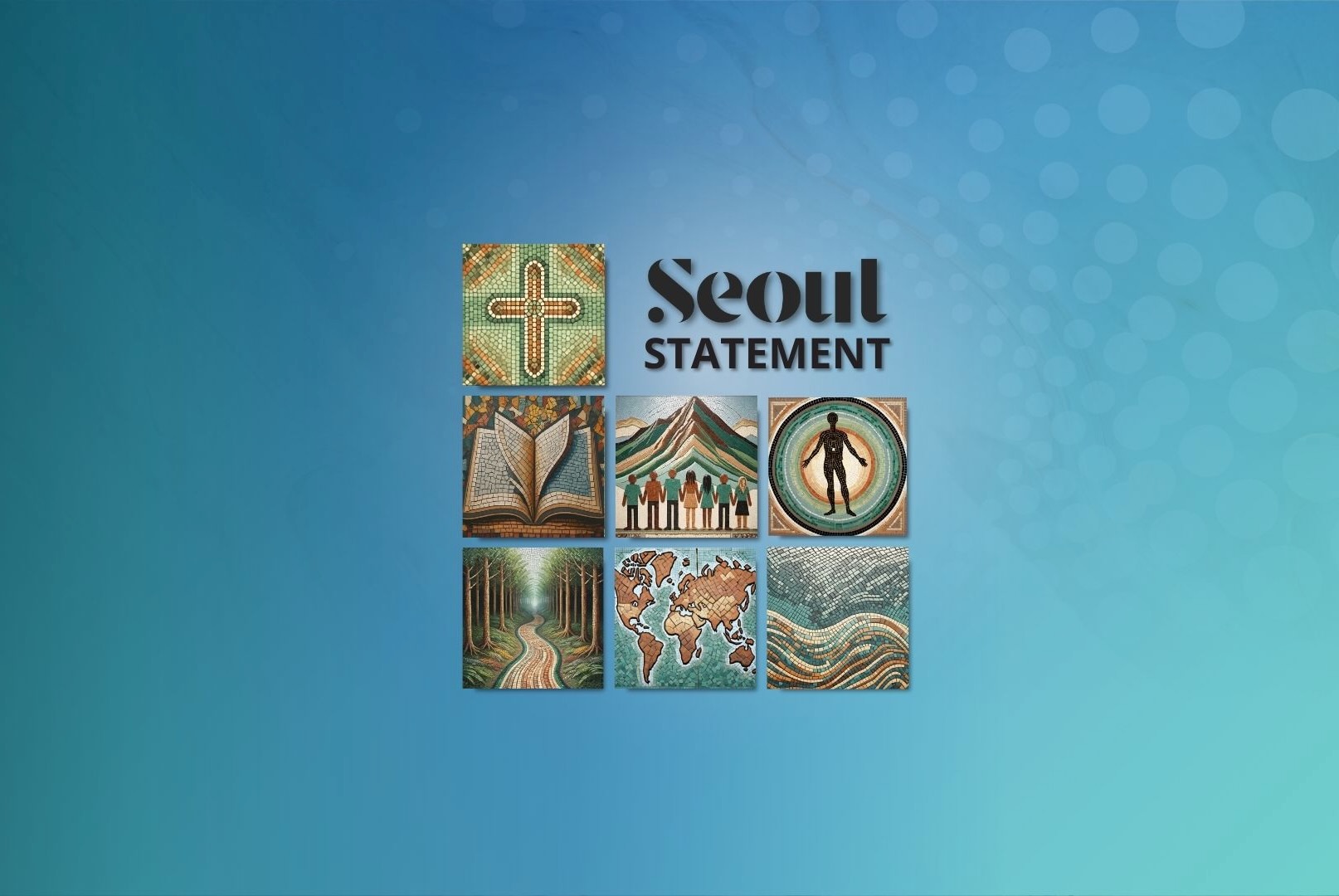The Seoul Statement released by the Theology Working Group of the Lausanne Movement on 22 September 2024 before the opening session of the Fourth Lausanne Congress marks a significant opportunity for the global church, inviting reflection on essential theological gaps that have emerged over recent years. Designed as a companion to the Lausanne foundational documents—the Lausanne Covenant, the Manila Manifesto, and the Cape Town Commitment—the Seoul Statement aims to strengthen and sharpen today’s mission work, complementing rather than replacing these foundational texts. Recognizing that the release of the Seoul Statement sparked many conversations, we want to engage openly and transparently with the global church.
Statement
The Seoul Statement
Preamble The Fourth Lausanne Congress held in Incheon, South Korea, marks the 50th anniversary of the birth of a remarkable movement committed to global mission. The First Lausanne Congress in 1974 brought together 2,700 church leaders from over 150 countries, who affirmed their shared conviction that the whole church…
Purpose and Place Among Lausanne’s Foundational Documents
The Seoul Statement’s intent is unique yet deeply interconnected with the spirit of the documents that precede it. Rooted in the Lausanne Movement’s ongoing journey of activating the body of Christ to accelerate global mission, it stands beside the original documents as a contemporary reflection that speaks to today’s world. The Lausanne Covenant has long been a widely embraced anchor of evangelical global mission, followed by the Manila Manifesto, which further explored the church’s responsibilities in a changing world. Later, the Cape Town Commitment built on these frameworks, calling for discipleship and deep personal commitment to mission.
In April 2024 the State of the Great Commission report was published. The State of the Great Commission report provides an in-depth analysis and synthesis of data on key global trends and challenges impacting the church’s mission, highlighting areas for strategic collaboration to advance the Great Commission. Featuring articles contributed by 150 authors from every corner of the globe, more than 120 charts and graphics, and available in seven languages, the State of the Great Commission report shines a light on 40 strategic missional priorities that require our attention today.
As a companion document to the State of the Great Commission report, the Seoul Statement aims to address specific theological gaps identified by the Theology Working Group alongside a number that emerged during an extensive listening process. Between September 2020 and April 2024, a dedicated team of global missiologists conducted three listening projects which sought to identify specific areas in which missional gaps and opportunities existed, further research and listening was needed, and where potential for fruitful collaborative action may be most possible. The Theology Working Group gathered insights from these listening projects, while also forming a globally diverse group of theologians that could dedicate time and energy to explore areas in which further theological clarity would be helpful in seeing the global church thrive in its God-given mission. This team’s thoughtful work brings new insights, aiming to provide clarity for a mission landscape that grows more complex and nuanced each year. The Seoul Statement thus serves as a clarion call for the church to continue examining its theological foundations and response in light of present challenges and opportunities.
Where the State of the Great Commission report calls attention to areas of mission strategy, the Seoul Statement asks us to consider particular areas in mission theology.
Understanding the Challenges in Release and Reception
While we intended the Seoul Statement to be a resource to engage and inform the Congress, practical challenges in review and translation processes prevented releasing it any earlier. We apologize for any confusion this may have caused, and we appreciate the feedback from those who voiced their concerns.
In acknowledging these concerns, we recognize that the Seoul Statement—while released as a standalone document—was always intended to work in concert with the State of the Great Commission report. Together, these two documents offer both theological and strategic insights, addressing critical gaps in understanding and approach. The State of the Great Commission report highlights specific areas where strategic collaborative action is needed, while the Seoul Statement addresses underlying theological questions that shape our understanding and engagement with the world.
Building on a Legacy: The History of Lausanne’s Documents
Every Lausanne document has been a milestone in an unfolding journey. The Lausanne Covenant was widely discussed, debated, and embraced as a foundational statement on global mission. In comparison, the Manila Manifesto and the Cape Town Commitment did not reach the same level of global discourse immediately, but over time, they have come to be appreciated as integral to the Movement’s heritage and contribution to the global church.
Interestingly, as the Cape Town Commitment matured, new topics emerged, prompting slight revisions over time, including considerations around bioethics and biotechnology. Each document’s journey underscores that Lausanne’s statements are dynamic while remaining anchored biblically, reflecting the church’s response to a rapidly changing world. Just as these earlier documents have developed, the Seoul Statement’s journey will likely involve additional layers of insight and refinement over time.
An Invitation for Ongoing Feedback and Conversation
The release of the Seoul Statement sparked meaningful reflection and dialogue, and we are deeply grateful for the interest and engagement it generated. The Theology Working Group recognizes the importance of this conversation and encourages continued reflection on the statement’s themes and their implications. While no further revisions to the Seoul Statement will be made by the Theology Working Group, we see this as the beginning, not the end, of engagement with the theological and missiological issues it raises.
The feedback received by the Theology Working Group to date has been reviewed and is appreciated. The topical gaps that have been identified in these submissions will be used in their exploration of potential areas for future study, elaboration, and expansion. We are committed to maintaining the conversation beyond the Congress. This is an ongoing journey—one that the Theology Working Group is prepared to continue, welcoming a diversity of voices and perspectives as we press forward.
Gathering
Seoul Statement in the Spotlight
In this second webinar following the Congress, we will explore the purpose, process, and key themes of the Seoul Statement with David Bennett (Global Associate Director) and Theology Working Group chairs Dr. Ivor Poobalan and Dr. Victor Nakah. Commissioned by Lausanne’s Senior Leadership, the Theology Working Group developed the…
Carrying the Seoul Statement’s Vision into the Future
The Seoul Statement is a tool for thoughtful engagement and mission-focused action. Its seven themes, covering many essential aspects of faith and mission, are numbered for easy reference, enabling church leaders, mission partners, and believers worldwide to explore each theme in depth. These themes bring a sense of clarity and unity in a world where theological and missional confusion can often cloud our understanding.
The Theology Working Group encourages Congress participants and all who engage with the Seoul Statement to read it reflectively, discuss it meaningfully, and consider its implications in their own contexts. By doing so, we honor the Statement’s purpose—not as a final answer to every missiological or theological question but as a guide for deeper understanding and shared action in a complex world.
As we look ahead, we invite those within the Lausanne Movement to embrace the Seoul Statement as part of a living tradition, an invitation to carry forward Lausanne’s fourfold vision:
- The gospel for every person
- Disciple-making churches for every people and place
- Christlike leaders for every church and sector
- Kingdom impact in every sphere of society
We remain dedicated to journeying alongside the global church in this endeavor, and we are thankful for every conversation, critique, and commitment to the shared task of advancing God’s mission in our time.




